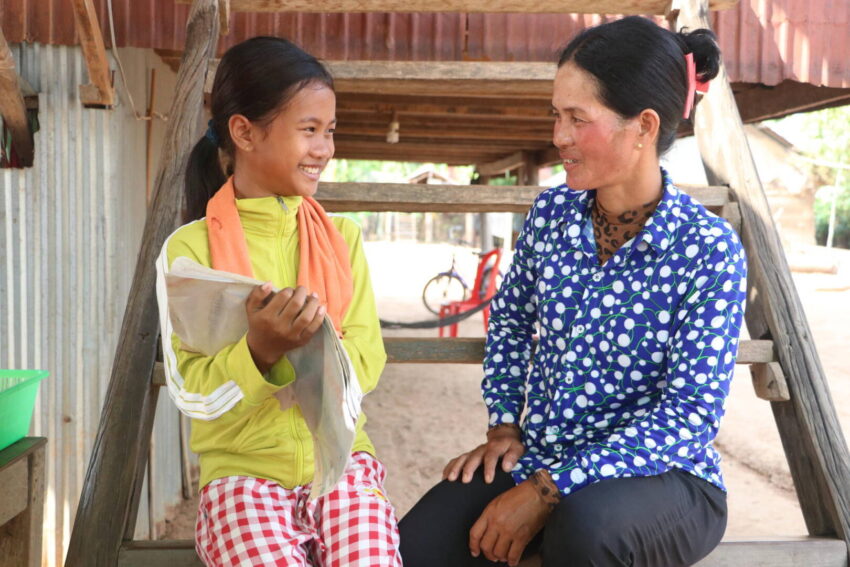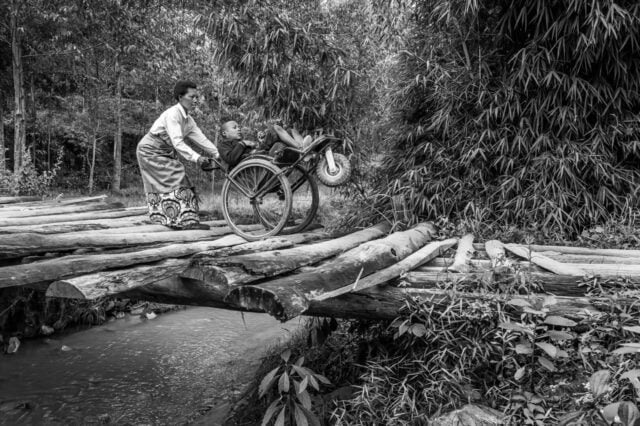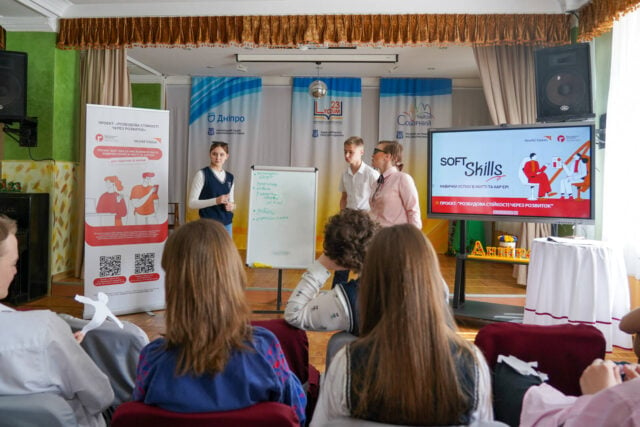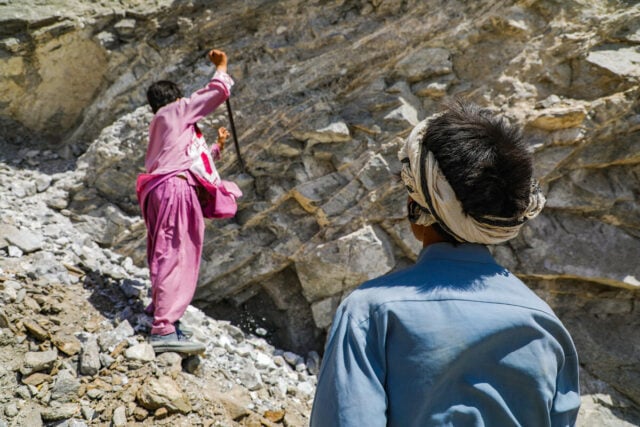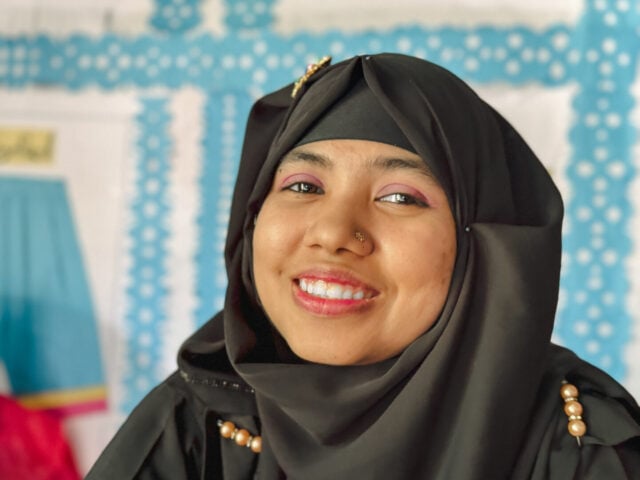In 2020, as the pandemic caused countries and societies to close their doors, Mao’s family in Cambodia worried about the impact it would bring to their doorstep. “We were really concerned about my family, and worried about how it would impact our children and their education. We were afraid of dying — we didn’t know how to prevent the spread or protect ourselves from COVID-19. We were also worried about losing family members to COVID-19.”
Questions floated amid the unknown, as Mao wondered how she and her husband would provide for their family. As fish and rice farmers, Mao and her husband could still put food on the table. Their source of income soon dropped as families stayed cooped within their homes. Providing anything more than food wasn’t an option.
Their children’s education also suffered, as schools in Cambodia closed. They supported their 11-year-old daughter, Narin, as much possible. They helped her study at home, but they didn’t have the school supplies she needed, and they couldn’t afford to buy them.
During this time, Narin was most concerned about her ability to learn, fearful of what it could mean for her future.
“I felt scared of COVID-19, and I worried about my school closing. I couldn’t go to school to study or play with my friends. I didn’t have a device to access distanced learning either,” shares Narin.
In the classroom and at home, Narin is studious. She works hard to fulfil her dreams of one day becoming a teacher.
“It’s important for children to continue learning so that they can develop themselves and their communities,” she says.
Children with interrupted access to education can miss foundational knowledge and skills that are crucial building blocks for their future. School closures and disruptions due to the pandemic have contributed to deepened learning poverty across the globe. In South Asia, children’s inability to read simple text increased from 60% pre-pandemic to a predicted 78% in 2022. For Narin, COVID-19 halted her education, but not for long.
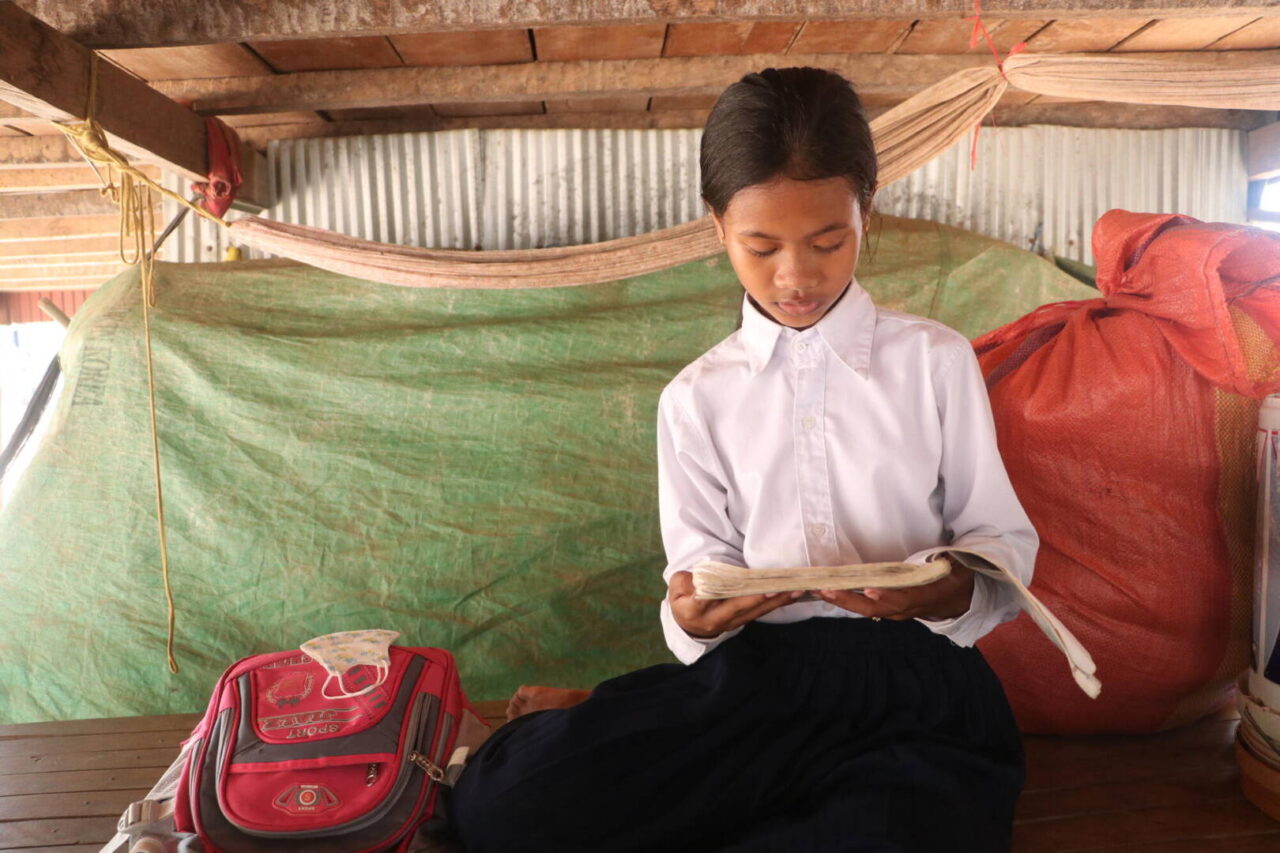
Turning the tide
Fortunately, Narin and Mao met World Vision staff who stepped in to provide support. Narin joined a World Vision program that enabled her to learn in small groups of students who meet weekly to attend reading circles. Here, Narin continues learning and growing in her favorite subject — reading. With books, notebooks, pens, bags, and new study materials provided by World Vision, Narin has the tools to continue her studies.
World Vision staff also equipped Mao and her husband with ways to best support Narin’s learning at home. And they shared information and supplies to reduce the risk of contracting COVID-19, helping to alleviate Mao’s prior concerns.
“I’m very happy with their offering,” says Narin, who is no longer hampered without a classroom to continue learning.
Narin dreams of a day where COVID-19 is eliminated and she can return to school. She shares, “I like going to school because I have lots of friends, it has a library full of books to read, and it has a handwashing station and a playground. I want to go safely to school and play with my friends happily.”
World Vision is committed to supporting children like Narin and their families to recover from the many indirect impacts of COVID-19.
Amy Van Drunen of World Vision’s U.S. staff contributed to this article.
